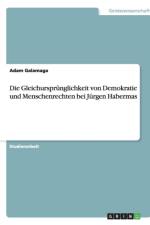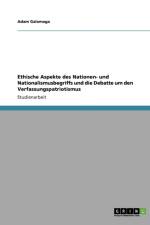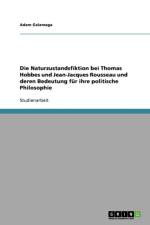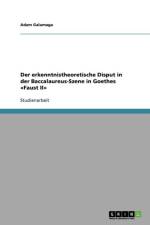von Adam Galamaga
16,95 €
Studienarbeit aus dem Jahr 2010 im Fachbereich Germanistik - Neuere Deutsche Literatur, Note: gut, Johann Wolfgang Goethe-Universität Frankfurt am Main (Institut für Deutsche Sprache II), Veranstaltung: Goethes «Faust. Der Tragödie Zweiter Teil». Edition und Kommentar, Sprache: Deutsch, Abstract: Dass die Tragödie um Faust einer philosophischen Auslegung unterzogen werden und dabei Einiges über die Weltanschauung von deren Autor verraten mag, wurde bereits von Friedrich Schiller bemerkt, der in seinem Brief an Goethe vom 22. Juni 1797 feststellte, dass die Anforderungen an den «Faust» sowohl philosophisch, als auch poetisch seien, und dass die Natur des Gegenstandes eine philosophische Betrachtung geradezu erforderlich mache.Inhaltlich lassen sich in Goethes Werk zahlreiche Verweise und Anspielungen auf philosophische Fragestellungen finden, dies betrifft sowohl den ersten, als auch den zweiten Teil des Dramas. Die Gelehrtentragödie betrifft im Allgemeinen das Problem der Erkenntnisfähigkeit des Menschen sowie die Frage nach der Möglichkeit, dem menschlichen Leben einen höheren und festen Sinn im kosmischen Spiel zwischen dem Guten und dem Bösen zu verleihen. Einzelne Episoden des «Faust» betreffen aber auch ganz spezielle philosophische Probleme. In «Faust II» beziehen sich diese Probleme hauptsächlich auf die Erschaffung der Welt ¿ die ¿Genesis¿ ist dessen thematischer Schwerpunkt. In genuin philosophischer Hinsicht ist der zweite Akt von besonderem Interesse, denn darin wird nach dem Ursprung der Welt im menschlichen Geist gesucht, und zwar am Beispiel eines Jünglings, der sich zum Zentrum der Welt erklärt, sowie am Beispiel der Erschaffung künstlicher Intelligenz, des Homunkulus. Die Baccalaureus-Szene, in der ein junger Student einen erkenntnistheoretischen Disput mit Mephisto führt und dabei die Bedeutung des Subjekts für die Erkenntnis stark hervorhebt, ist nicht nur für das Gesamtkonzept des Dramas von Bedeutung, sondern wirft auch zahlreiche textexterne Fragen auf. Als besonders brisant erscheint die Frage, inwiefern Goethe eine bestimmte erkenntnistheoretische Position kritisieren wollte. Diesen Problemstellungen wird in dieser Arbeit nachgegangen.










